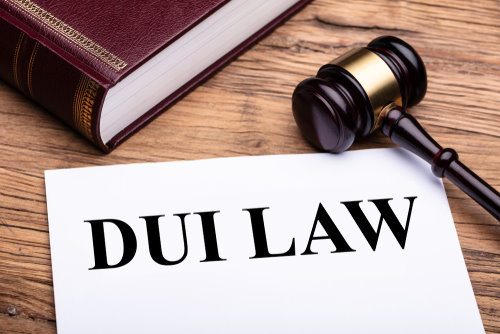
If you’ve been arrested for DUI Defense, you may be feeling overwhelmed and uncertain of what to do next. An experienced attorney for Fort Worth DUI arrests can guide you through the process and help you understand your rights and options.
At Cole Paschall Law, we have extensive experience handling DUI cases in Fort Worth. We know the ins and outs of the law and can help you build a strong defense.
Here’s everything you need to know and expect after a DUI Defense arrest in Fort Worth.
DUI Defense Lawyer: DUI Arrest and Processing (DWI Offense Report)
Just like any other criminal penalties, Fort Worth police, and even Dallas police, will follow a similar process when arresting an individual for driving under the influence of alcohol or drugs.
The following is a general overview of what you can expect after a Fort Worth DUI Defense or DWI charge:

- Initial Observations
The first thing the arresting officer will do is make observations about your appearance and behavior. They will look for signs of intoxication, such as slurred speech, watery eyes, or an odor of alcohol on your breath. - Vehicle Stop
If the officer believes you are intoxicated, they will ask you to pull over. They will then ask for your driver’s license and registration. You need to make sure that you cooperate with the officer, but you should avoid answering any questions about where you’ve been or how much you’ve had to drink. - Driving or Actual Physical Control
The officer will ask you questions about your driving. They will also look for any signs that you were impaired while driving, such as swerving or speeding. - Field Sobriety Tests
The officer will ask you to perform a few field sobriety tests. These tests are voluntary, but if you refuse to take them, the officer can arrest you on suspicion of DUI.
The test includes:- Horizontal Gaze Nystagmus Test
- Walk and Turn Test
- One Leg Stand Test
- Arrest
If the Fort Worth police officer has determined that you are intoxicated, they will arrest you and put you in custody. You will then be taken to the police department station for processing. - Disposition/Location of Vehicle and Keys
After you’ve been arrested, the officer will take your driver’s license and registration. They will also impound your vehicle. The officer will give you a receipt for your vehicle and keys. - Disposition of Passenger and/or Property
Aside from the vehicle, the police department will also take any property that was in your possession at the time of the arrest. This includes your purse, wallet, and phone. - Implied Consent/Miranda Warning
One of the most crucial parts of the DUI Defense or DWI arrest process is the Miranda Warning. This is when the officer reads you your rights:
“You have the right to remain silent and you should exercise that right. Anything you say can and will be used against you in a court of law. You have the right to an attorney and if you cannot afford one, one will be appointed for you.” - Witness Statements
If there are any witnesses to your arrest, the police officers will take their statements. These statements can be used against you in court, so it’s important to have an attorney who can cross-examine the witnesses and challenge their statements. - Notification of Offender’s Attorney or Other Party
After you’ve been arrested, the police will contact a DUI Defense attorney or other parties to notify them of the arrest. You can also have a free consultation with an attorney at Cole Paschall Law to discuss your case and what options are available to you. - Incarceration or Release
After you’ve been arrested or under restricted duty due to DWI arrest, you will either be released on bail or incarcerated. Released on bail is the process where you pay a set amount of money to the court in order to be released from jail until your court date. While incarceration is self-explanatory, it’s worth noting that you will not be able to post bail until you see a judge. - Additional Chemical Test
After you’ve been arrested, you will be asked to submit to a chemical test. This test is usually a breath or blood test.
The purpose of this blood test is to determine your blood alcohol (BAC) at the time of the arrest. If you refuse to take this test, your license will be automatically suspended. This driver’s license suspension will last for 180 days.
What Are Your Rights if You’re Arrested in Texas?
Getting arrested by a Fort Worth police officer for a DWI charge or due to drunk driving can be a very frightening experience. If you are stopped and arrested for DWI in Texas, it is important to know your rights before going to the sheriff’s office. Below are some of the things you need to know if you are arrested for DWI:
- You have the right to remain silent.
- You have the right to an attorney.
- You have the right to refuse a blood or breath test.
What to Do Before Your Arraignment?
After you have been arrested and processed, you will have your arraignment. This is a formal reading of the charges against you and is your first appearance in court.
At your arraignment, the judge, just like in Tarrant County, will set bail and decide if you will be released until your trial or if you will remain in jail. The judge will also schedule your next court appearance.
But before your arraignment, you need to do the following things:
- Hire a DUI Defense lawyer.
- Gather evidence that can help in the investigation of your cases, such as witnesses or video footage.
- Understand the charges against you and the possible penalties.
- Prepare for your arraignment by practicing what you will say to the judge.
- Be respectful and dress appropriately for court.
Cole Paschall Law can help you with all of these things. We will make sure that you are prepared for your arraignment and we will fight for the best possible outcome in your case. Contact us today to learn more.
What Happens After Your Arrest?
After you have been arrested, there are a few things that will happen. You will be taken to the police station for booking and processing. This includes taking your mugshot and fingerprints.
You will then be held in jail until your court date. As we mentioned, when you are incarcerated, you will not be able to post bail until you see a judge.
If you are able to post bail, you will be released until your court date. If not, you will remain in jail until your trial.
It is important to have an experienced DUI Defense lawyer on your side who can help you navigate the criminal justice system and fight for the best possible outcome in your case.
How to Handle a DWI in Texas?
Getting charged with a DWI is a serious offense in Texas. If you are convicted of a DWI, you could face up to 180 days in jail, a fine of up to $2,000, and your driver’s license could be suspended for up to one year.
If you have been charged with a DWI, it is important to hire an experienced DUI Defense lawyer who can help you navigate the criminal justice system and fight for the best possible outcome in your case.
Consult a DUI Attorney
If you have been charged with a DWI in Texas, it is important to consult with an experienced Fort Worth DUI Defense lawyer as soon as possible. The sooner you get legal help, the better your chances of achieving a favorable outcome in your case.
At Cole Paschall Law, we have experience handling all types of DUI Defense cases. We will review the facts of your case and build a strong defense on your behalf. Contact us today to schedule a consultation.
FAQ
When do the police need a warrant to make an arrest?
Before making an arrest, the police must go through the required procedures. However, those procedures vary depending on the circumstances. One of those procedures involves getting a warrant.
In some cases, a police officer can arrest you without a warrant. But, at other times, a warrant is a necessity. It’s important to understand the laws regarding warrants so you can make sure no one violates your rights. If you do believe an officer violated your rights, you can contact us at Cole Paschall Law. A Fort Worth criminal defense attorney can help you beat your charges. [more]
What is the difference between a DUI and a DWI in Texas?
In Texas, a DUI is a misdemeanor offense that is punishable by up to 180 days in jail and a fine of up to $2,000. A DWI is a felony offense that is punishable by up to 10 years in prison and a fine of up to $10,000.
How can I get my DUI case dismissed in Texas?
There are a few ways to get your DUI Defense case dismissed in Texas. The first is through pretrial diversion, which is a program that allows first-time offenders to complete a set of requirements in exchange for the dismissal of their charges.
The second way to get your DUI Defense case dismissed is through deferred adjudication, which is a type of probation. If you complete your probation successfully, your charges will be dismissed.
The third way to get your DUI Defense case dismissed is by winning at trial. An experienced DUI Defense lawyer will know how to build a strong defense on your behalf and give you the best chance of getting a not-guilty verdict.
What is the best defense for a DUI?
The best defense for a DUI Defense will vary depending on the facts of your case. Some common defenses that are used in DUI Defense cases include:
- The stop was illegal.
- The field sobriety tests were administered incorrectly.
- The breathalyzer test was administered incorrectly.
- There was no probable cause for the arrest.
There are further significant charges that the state may bring if it is claimed that a DWI caused an accident, someone was hurt or killed, or any of these things. Among them are:

